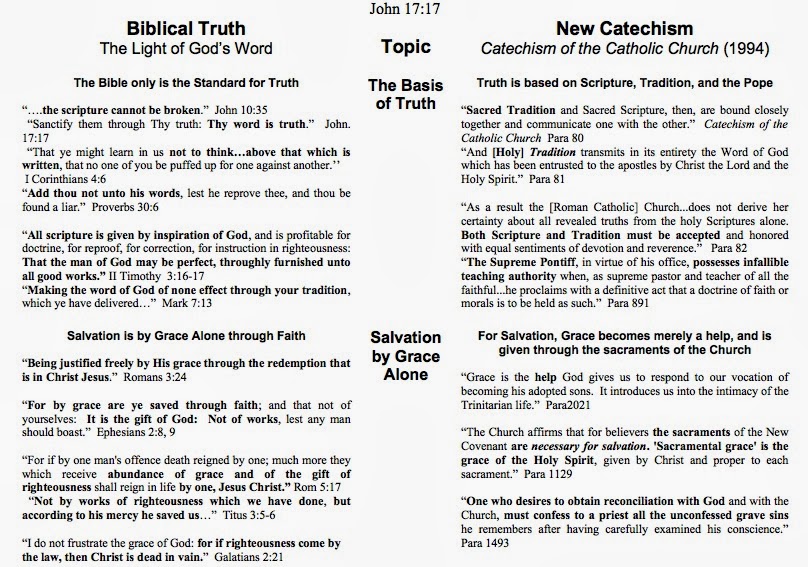Catholicism and Christianity are often discussed in the same breath, yet they encompass distinct beliefs, practices, and traditions that can sometimes lead to confusion. While Catholicism is indeed a branch of Christianity, understanding the nuances between the two is essential for anyone seeking to deepen their religious knowledge or engage in meaningful discussions about faith. This article will explore the fundamental differences and similarities between Catholicism and Christianity, shedding light on their historical contexts, core beliefs, and practices.
As we delve into the discussion of Catholicism vs Christian, it is important to recognize that both share a foundational belief in Jesus Christ as the Son of God and Savior of humanity. However, their interpretations of scripture, the role of tradition, and the significance of sacraments can differ greatly. This article will break down these differences, offering a clearer perspective on how Catholicism fits within the broader Christian tradition, and how other denominations interpret these foundational beliefs.
Moreover, understanding Catholicism vs Christian not only enriches one’s personal faith journey but also fosters greater inter-denominational dialogue. As society becomes increasingly diverse in religious beliefs, grasping these distinctions can facilitate respectful conversations and promote unity among various Christian denominations. Join us as we navigate the complex landscape of faith, tradition, and belief that defines Catholicism and its place within the larger Christian community.
What are the Historical Roots of Catholicism and Christianity?
The origins of Catholicism are deeply embedded in the early Christian church. After the death and resurrection of Jesus Christ, his disciples spread his teachings throughout the Roman Empire, leading to the establishment of various Christian communities. Over time, these communities developed distinct identities, with Catholicism emerging as one of the earliest organized expressions of Christianity.
How Did Catholicism Evolve Over Time?
Catholicism has undergone significant transformations since its inception. Key historical events, such as the Edict of Milan in 313 AD, which legalized Christianity in the Roman Empire, and the Great Schism in 1054, which divided Eastern Orthodox and Roman Catholic churches, have shaped its doctrines and practices. The Protestant Reformation in the 16th century further highlighted the differences between Catholicism and other Christian denominations, leading to a multitude of new interpretations and practices.
What Are the Core Beliefs of Catholicism?
- The Authority of the Pope: Catholics believe that the Pope is the spiritual leader of the Church and the successor of Saint Peter, whom they consider the first Pope.
- The Sacraments: Catholicism recognizes seven sacraments as essential for salvation, including Baptism, Eucharist, and Confirmation.
- Tradition and Scripture: Catholics hold that both sacred scripture and tradition are vital sources of authority in understanding God’s revelation.
- The Importance of Mary and the Saints: Catholics venerate Mary and the saints, seeking their intercession in prayer.
How Do Other Christians View Catholicism?
Many other Christian denominations, including Protestantism and Eastern Orthodoxy, have varying perspectives on Catholicism. Some view Catholic beliefs and practices as divergent from what they interpret as the original teachings of Jesus and the apostles, particularly regarding the authority of the Pope and the role of tradition. Others appreciate the rich history and traditions of Catholicism while maintaining their own interpretations of faith.
What Are the Key Differences Between Catholicism and Other Christian Denominations?
While Catholicism shares essential beliefs with many Christian denominations, significant differences exist. For instance, Protestant denominations typically emphasize the authority of scripture alone (sola scriptura) over tradition, leading to varied interpretations of the Bible. Furthermore, many Protestant groups recognize only two sacraments—Baptism and Communion—while Catholicism maintains seven. These distinctions are crucial in understanding the broader context of Catholicism vs Christian.
What Are the Similarities Between Catholicism and Other Christian Faiths?
Despite the differences, Catholicism and other branches of Christianity share a common foundation. Both affirm the centrality of Jesus Christ, the importance of faith, and the call to live a life of love and service. Both also celebrate core events such as Christmas and Easter, albeit with varying interpretations and emphases. Ultimately, the shared commitment to following Christ serves as a bridge between Catholicism and other Christian denominations.
How Can One Approach the Catholicism vs Christian Debate Respectfully?
Engaging in discussions about Catholicism vs Christian requires sensitivity and respect for differing beliefs. Here are some tips for navigating these conversations:
- Listen Actively: Understand the perspectives of others without preconceived judgments.
- Ask Questions: Encourage dialogue by asking open-ended questions to gain deeper insights.
- Focus on Common Ground: Highlight shared beliefs and values to foster mutual understanding.
- Avoid Stereotypes: Be cautious not to generalize or misrepresent another’s faith.
What Is the Future of Catholicism and Christianity?
As society continues to evolve, both Catholicism and Christianity face numerous challenges and opportunities. Engaging young people in faith, addressing contemporary moral and ethical issues, and fostering ecumenical dialogue are essential for the future of both traditions. By embracing diversity while celebrating shared beliefs, Catholicism and Christianity can continue to thrive in a complex world.
Conclusion: Navigating the Catholicism vs Christian Landscape
In summary, the discussion around Catholicism vs Christian encompasses rich historical, theological, and social dimensions. While recognizing the differences between Catholicism and other Christian denominations is essential, so is appreciating the shared commitment to faith in Christ. By fostering dialogue and understanding, individuals can cultivate a more profound appreciation for the diverse expressions of Christianity that exist today.
Unveiling The Timing: How Long Do Sock Curls Take?
Unveiling The Enigma Of Randall From Monster Inc
Discovering The Multi-Talented Niki Enhyphen


